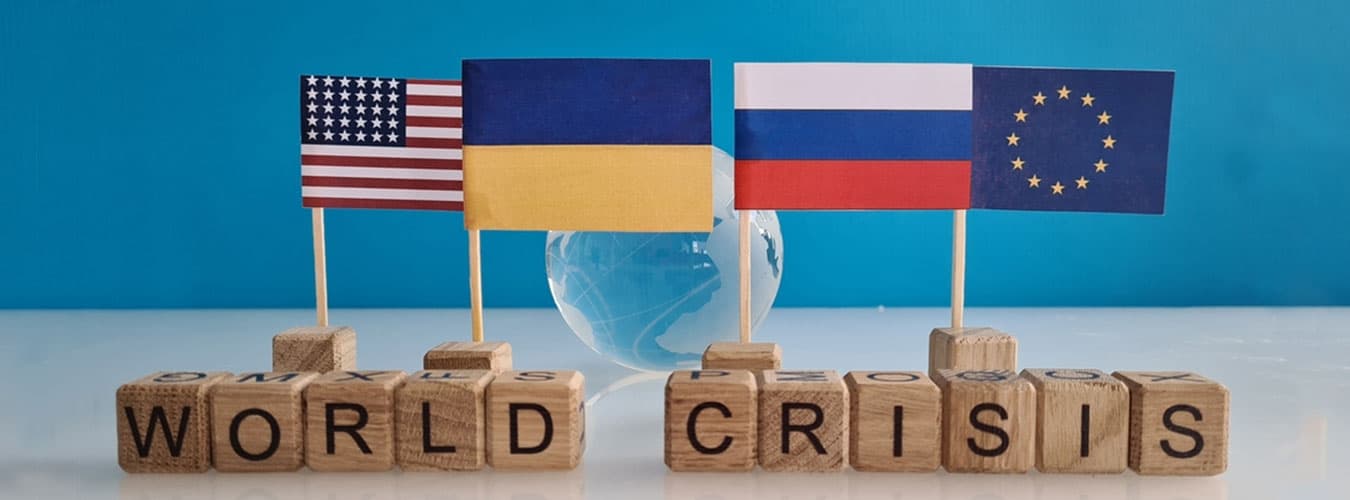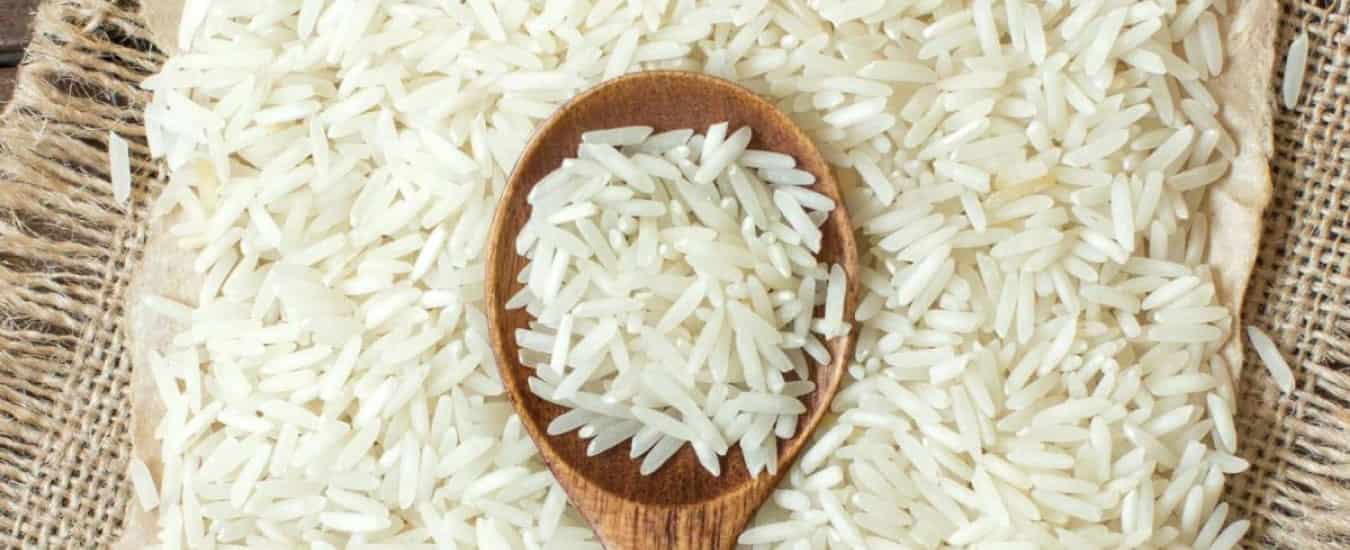A long way from Russia’s war with Ukraine, big supermarkets are starting to run out of cooking oil, gas prices are going up, farmers are rushing out to buy fertilizer, and countries are rethinking their alliances.
Russia’s invasion of Ukraine has caused tremors around the world, including a fast-moving refugee crisis, sanctions against a major economy that have never been done before, and a reshaping of international relationships, including a re-energized NATO. Ukraine and Russia are two of the biggest exporters of wheat, barley, corn, and cooking oil, especially to countries in Africa and the Middle East. Russia is also one of the biggest places where fertilizer and oil are made. Disruptions in the flow of these goods due to Russia’s war with Ukraine are making other supply chains and climate problems worse. This is driving up the prices of food and gas, causing shortages, and putting millions of people at risk of going hungry.
SRI LANKA
Sri Lanka’s economic crisis was made worse by the war, which caused fuel and food prices to go up. In April, the annual rate of inflation reached 29.8%. The government stopped making payments on its foreign debt and asked the International Monetary Fund for help. China and India are both trying to gain power in the country, which has a lot of debt.
LEBANON
In the first month of the war, the price of wheat went up 47% and the price of sunflower oil went up 83%. A basic food basket now costs more than three times as much as it did a year ago.
EGYPT
Most of the wheat that Egypt imports come from Ukraine and Russia. To protect its wheat reserves, Egypt has banned the export of flour, wheat, pasta, and lentils. The government also set prices for bread sold in stores.
INDIA
The second-largest wheat producer in the world has increased the amount of grain it sends all over the world in order to make up for supply problems in Ukraine and Russia.
BANGLADESH
The engine of this economy, the clothing industry, is being hurt by fashion brands leaving Russia, problems with shipping, and rising energy prices. As prices for basic foods went up, the government set up a program to help people buy food.
KENYA
The price of fuel has just reached its highest level in more than a decade.
BRAZIL
Farmers in this global agricultural powerhouse are worried about shortages of fertilizer and skyrocketing costs. Brazil is a worldwide agricultural powerhouse. Russia is responsible for more than a fifth of Brazil’s fertilizer imports, making Brazil the largest importer of fertilizer in the world.
SYRIA
The administration, fearing a lack of essential goods and a subsequent increase in prices, made preparations to limit stocks of commodities such as wheat, sugar, and cooking oil.
ITALY
As a result of the spike in the cost of energy, Italy is experiencing the greatest inflation rate in three decades. During one of the most rapid periods of population displacement in modern history, almost 5.8 million people have abandoned their homes as a result of Russia’s war with Ukraine. The response of humanitarian organizations has been swift, despite the fact that their resources are already being stretched thin by other crises.
Since both refugees and the countries hosting them face difficulties in obtaining healthy food and shelter as well as mass transit, education, and funds, the UNHCR has estimated that approximately 8.3 million Ukrainians may flee the country. The UNHCR has made a plea for increased financial support for refugees and the countries hosting them in order to alleviate these difficulties.
UNITED STATES
Up to 100,000 Ukrainians and others affected by the conflict will be allowed entry into the United States as part of a new program for Ukrainian refugees who will be sponsored by a U.S.-based sponsor.
AFGHANISTAN
Humanitarian crises in Ukraine and Afghanistan have distracted attention from each other, and relief resources are already stretched to the limit. Food and gasoline costs have risen sharply, resulting in an increase in hunger and poverty. Afghan migrants in Europe compare their asylum experience to that of Ukrainian refugees; some Afghans claim they were forced to relocate to make room for freshly arrived Ukrainian refugees.
POLAND
More than 3.2 million people, nearly twice the population of Warsaw, have migrated here, more than half of Ukraine’s refugees. Classroom sizes were increased across the nation because the number of new pupils might approach 700,000. Nuclear power in Europe is driving the globe toward a possibly fundamental realignment in the wake of a 21st-century conflict (Russia’s war with Ukraine) in Europe. Europe and the United Nations have been unsettled, and nations have taken sides in new ways that have sparked rising tensions and major diplomatic changes.
CHINA
In the face of mounting international pressure to criticize Moscow’s military adventurism, China finds itself in a precarious diplomatic position. China and Russia announced a “no-limits relationship” around three weeks before Russia invaded Ukraine. More commercial relations with China may help Moscow counter some of the restrictions imposed by the West.
ISRAEL
Due to Israel’s prime minister’s intimate relationships with the presidents of both Russia and Ukraine, the country has made a claim on the role of prospective mediator between the two nations. Israel has taken in thousands of Ukrainian refugees and Russians escaping oppressive regimes.
INDIA
In the face of Western pressure to join anti-Russian sanctions, India, the world’s largest democracy, has resisted and continues to purchase Russian oil and armaments. India has always maintained good relations with Russia, and it is concerned that a rift with Moscow might lead to a tighter relationship between Russia and China. The Russian invasion of Ukraine has not been criticized by India, despite its condemnation of the deaths of civilians there.
IRAN
Iran’s nuclear pact with world powers, including the United States, Europe, China, and Russia, was rocked by the conflict in Ukraine. In terms of natural gas and oil production, Russia is the second-largest producer in the world. The European Union has been heavily reliant on Russian energy and is now prepared to implement a gradual oil embargo in phases. Restructuring of the global petroleum and gas trade is taking place, as nations restrict or reduce Russian energy imports, penalize Russian enterprises, and confront Russia’s demands for payments in rubles.
Only Russia has a larger stockpile of nuclear weapons than any other nation. Since the start of Russia’s war with Ukraine, the United States and European nations in NATO’s military and political alliance have reawakened. All throughout the globe, militaries are being beefed up or defences are being reevaluated as a result of increased military expenditure.
UNITED STATES
American military assistance to Ukraine has now surpassed $3 billion dollars. White House requests $20 billion to deploy weapons to Ukraine, replenish U.S. armament stocks, and offer cybersecurity and other help in the area are under consideration by Congress. In the energy area, An unprecedented amount of oil from strategic stockpiles was released by the White House in an effort to balance off the war’s effect on skyrocketing gasoline costs. The United States also forbade the importation of Russian oil, gas, and coal.
UK
British military assistance to Ukraine, which includes anti-tank missiles and air defence equipment, has now reached 1.3 billion pounds.
MOLDOVA
Russian forces are stationed in the breakaway enclave of Transnistria, and Moldova is reassessing its security. There are worries that Moldova may be turned into a buffer state between an enlarged Russia and NATO if the Kremlin invades further.
LIBYA
Russian paramilitary Wagner Group mercenaries have been said to be on the move from Libya to Ukraine, according to media sources.
CANADA
As an alternative to Russian oil imports, the government promised to increase its own oil exports.
POLAND
In response to Russian demands for payment in rubles, Russia cut off the gas supply. By the end of the year, Poland intends to restrict Russian gas, oil, and coal imports.
QATAR
Liquefied natural gas (LNG) is an alternative to Russian gas that the government is negotiating with European purchasers.
BULGARIA
Due to a demand for payment in rubles from Russia, gas supplies were cut off. As a result of its reliance on Russian gas supplies, Bulgaria is exploring its own gas reserves and potential alternatives.
GERMANY
From 55% to 35%, Germany has reduced its dependency on Russian gas, while Russian oil has dropped from 35 to 12% of its total oil imports. The administration began preparing for a possible natural gas shortage as soon as possible.










